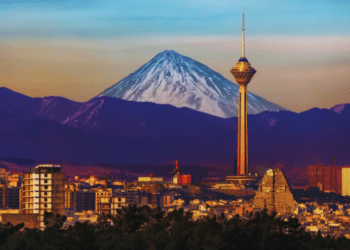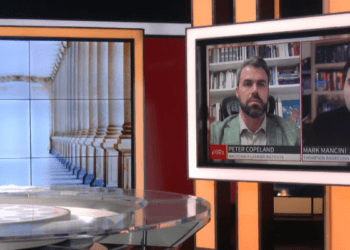In the Ottawa Citizen, Calgary Herald and Regina Leader-Post, MLI managing director Brian Lee Crowley meditates on our cold climate and the Canadian character. While much of the country has been facing an early and harsh winter, we “are rather proud of being snow-covered a good part of the year”, writes Crowley. “… Over the centuries some of the leading philosophers, people like Aristotle and Montesquieu, have speculated that climate might be an important factor in shaping national characters. From observing Canadians, I think they were on to something”.
Brian Lee Crowley, January 3, 2014
Quelques arpents de neige (a few acres of snow) was Voltaire’s dismissive summary of the significance of New France and what was to become Canada, a place he’d never seen but whose salient feature he knew to be the cold.
As I write this, the temperature in Ottawa, Saskatoon and Montreal is colder than the South Pole (and parts of Mars!), a major snowstorm threatens to dump more than a foot of snow on the Maritimes, and southern Ontario is still recovering from the devastation of a vast ice storm. Yet for most of us who call Canada home, there is little inclination to acquiesce in Voltaire’s assessment.
On the contrary, we are rather proud of being snow-covered a good part of the year. Quebec’s unofficial anthem is Mon pays, c’est l’hiver (My Country is Winter), Canadians abroad are wont to regale foreigners with stories of winter machismo in which we vie with each other to describe the most harrowing temperatures, and our national winter sport can’t be played unless you have a sheet of ice handy.
Over the centuries some of the leading philosophers, people like Aristotle and Montesquieu, have speculated that climate might be an important factor in shaping national characters. From observing Canadians, I think they were on to something.
Montesquieu (Charles-Louis de Secondat to his buddies), for instance, was of the view that cold climates made the bodywork harder and increased blood flow to the heart. From these physical effects emerged national characteristics like energy and courage but also emotional reserve. In one memorable passage he advised that “you must flay a Muscovite alive to make him feel.” Hot climates, by contrast, produce lassitude, enervation and emotional incontinence. Just compare, he said, the reaction of a British and an Italian audience to opera if you want to see the differences in action!
I have often thought of Montesquieu as I observe Canadians. In a cold climate where night comes early so much of the year, it takes tremendous energy just to get up in the morning. And you don’t waste that energy on superfluous shows of emotion. You save it up for what really matters.
Cold climates might also be a little self-selecting in the sense that they scare away some people who prefer more clement climes. You have to be a bit hardy to settle in Canada.
Reading Tim Cook’s moving two-volume history of Canada’s role in the First World War and especially how Canadian troops overcame the most appalling conditions and grievous losses to shape themselves into the best and most fighting force on the Western Front, you can’t help wondering if there is something about the Canadian experience that forges just the kind of steely but undemonstrative spirit that Montesquieu attributes to cold climates.
Then there is hockey. You probably read a lot of the same guff I do purporting to describe Canadians. It invariably focuses on how “nice” we are. We’re polite, we’re peacekeepers, our banks are well run. Ho hum.
I think it’s nonsense. If you want to see Canadians as we really are, you have to look at us on the ice, where in fact we’re not nice at all. We are a hardscrabble bunch who will do anything to win when winning really matters, like the Canada-Russia hockey series of 1972. Throwing down the gloves and having a bit of a punch up is as Canadian as it comes, and reflects the tough culture of the frigid and far-flung mining towns that gave rise to the early leagues. We’re not brash and boastful, like the Americans. We just get the job done and heaven help you if you get in our way.
That was driven home to me by the story a good friend tells about how he and his family came to Canada. He was born in Holland and his father tells the story of walking down the street in the old country one day and coming across a Canadian soldier. Canadians had just liberated Holland from the Nazis at great cost and my friend’s father stopped the soldier and said to him that on behalf of all his countrymen he wanted to thank this soldier and his comrades for what they had done.
The Canadian, so the story goes, looked him right in the eye and said, “No need to thank me, sir. We had a job to do and we did it.” He saluted smartly and went on his way. My friend’s father came home that day and said, “We have to move to that country.” His son is now a distinguished member of Parliament.
If you’re Canadian, you grumble about the cold. But never lose sight of the kind of people the cold helps to shape in the great white north.
Brian Lee Crowley (twitter.com/brianleecrowley) is the Managing Director of the Macdonald-Laurier Institute, an independent non-partisan public policy think tank in Ottawa: www.macdonaldlaurier.ca.




